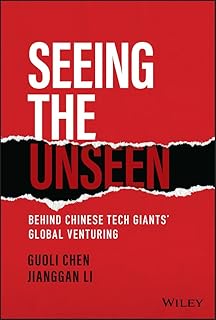Goldman Sachs has identified PDD Holdings and Futu Holdings as two of the 27 US-listed Chinese companies that could potentially meet the listing requirements of the Hong Kong Stock Exchange. This revelation comes amidst growing concerns that at least 170 other Chinese firms risk delisting from American stock exchanges. The combined market capitalization of these 27 companies stands at a staggering US$191 billion, making them significant players in the financial landscape.
The possibility of a financial-market decoupling between the US and China looms large, with US Treasury Secretary Scott Bessent indicating that all options are being considered in light of the ongoing tariff war between the two economic powerhouses. In response to the evolving situation, Chinese companies ineligible for listing on the Hong Kong Stock Exchange may explore avenues such as privatization to protect their shareholder interests in the event of forced delisting from US bourses.

Aside from PDD and Futu, other notable companies like Full Truck Alliance, Zeekr Intelligent Technology, RLX Technology, and TAL Education are also contemplating a shift towards listing in Hong Kong to safeguard their market presence. The strategic move to consider Hong Kong as a listing destination aligns with the Chinese government’s strong backing of the city’s capital market, as highlighted by Tom Chan Pak-lam, the honorary president of the Institute of Securities Dealers.
Over the past few years, a growing number of prominent US-listed Chinese corporations, including industry giants like Alibaba Group Holding, JD.com, and Baidu, have opted for primary or secondary listings in Hong Kong. This trend emerged in response to concerns raised regarding US access to audit reports, which initially posed a threat of delisting for these companies. The shift towards Hong Kong as a listing venue reflects a broader strategic realignment within the global financial landscape.

Goldman Sachs underlines the effectiveness of the fungibility mechanism and notes the increasing comfort level of global investors in trading American Depositary Receipts (ADRs) in Hong Kong. This signals a broader trend towards diversification and risk mitigation strategies among companies navigating the complex interplay of international markets.

The evolving dynamics of cross-border listings underscore the interconnectedness of global financial markets and the strategic considerations that companies must weigh in navigating regulatory landscapes. As geopolitical tensions shape market conditions, the choice of listing destination holds significant implications for companies seeking to maintain their market presence and investor confidence in an increasingly complex and interconnected world.
🔗 Reddit Discussions
- Your guide to move away from big tech and support more ethical companies! (Updated)
- A Chinese startup just showed every American tech company how quickly it’s catching up in AI
- Chinese & Japanese tech companies are hiring “programmer cheerleaders” to motivate programmers and raise morale in the office



